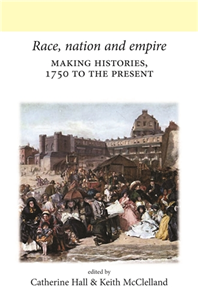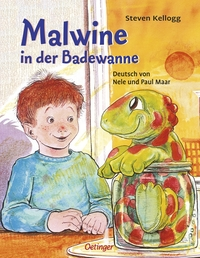Your Search Results
-
Reading Luxembourg
Reading Luxembourg is Luxembourg's export programme. Beyond the annual national stand at Frankfurt Book Fair, Reading Luxembourg is in charge of various missions, such as the presence at other fairs, festivals and literary events, a training offer for professionals of the book and publishing sector and strategic support to foreign rights sales. Reading Luxembourg is linking up publishers and authors from Luxembourg with stakeholders on an international level and providing information on available translation and publication grants.
View Rights Portal
-
Promoted ContentThe ArtsJanuary 2019
Robert Bresson
by Keith Reader
This book provides a comprehensive introduction to the work of Robert Bresson, one of the most respected and acclaimed directors in the history of cinema.. The first monograph on his work to appear in English for many years dealing not only with his thirteen feature-length films but also his little-seen early short Affaires publiques and his short treatise Notes on cinematography.. The films are considered in chronological order, using a perspective that draws variously on spectator theory, Catholic mysticism, gender theory and Lacanian psychoanalysis.. The major critical responses to his work, from the adulatory to the dismissive, are summarized and analyzed.. The work includes a full filmography and a critical bibliography.
-
Promoted Content
-
 Trusted Partner
The ArtsFebruary 2018
Trusted Partner
The ArtsFebruary 2018Screening the Paris suburbs, 1895–1995
by Philippe Met, Annie Fourcaut, Roland-François Lack, Jean-Louis Pautrot, Keith Reader, Margaret Flinn, Eric Bullot, Tristan Jean, Malcolm Turvey, Elisabeth Cardonne-Arlyck, Térésa Faucon, Philippe Met, Camille Canteux, Derek Schilling, Guillaume Soulez, David Vasse, Derek Schilling
-
 Trusted Partner
The ArtsDecember 2019
Trusted Partner
The ArtsDecember 2019Screening the Paris suburbs
From the silent era to the 1990s
by Philippe Met, Annie Fourcaut, Roland-François Lack, Jean-Louis Pautrot, Keith Reader, Margaret Flinn, Eric Bullot, Tristan Jean, Malcolm Turvey, Elisabeth Cardonne-Arlyck, Térésa Faucon, Philippe Met, Camille Canteux, Derek Schilling, Guillaume Soulez, David Vasse, Derek Schilling
Decades before the emergence of a French self-styled 'hood' film around 1995, French filmmakers looked beyond the gates of the capital for inspiration and content. In the Paris suburbs they found an inexhaustible reservoir of forms, landscapes and social types in which to anchor their fictions, from bourgeois villas and bucolic riverside cafés to post-war housing estates and postmodern new towns. For the first time in English, contributors to this volume address key aspects of this long film history, marked by such towering figures as Jean Renoir, Jacques Tati and Jean-Luc Godard. Idyllic or menacing, expansive or claustrophobic, the suburb served divergent aesthetic and ideological programmes across the better part of a century. Themes central to French cultural modernity - class conflict, leisure, boredom and anti-authoritarianism - cut across the fifteen chapters.
-
 Trusted Partner
June 2008
Trusted Partner
June 2008Father Browns Geheimnis
Erzählungen
by Gilbert Keith Chesterton, Hanswilhelm Haefs
Gilbert Keith Chesterton wurde am 29. Mai 1874 in London geboren. Er begann eine Ausbildung als Illustrator an der Slade School of Art und besuchte Literaturvorlesungen am Londoner King’s College. Als Kolumnist und Literaturkritiker schrieb er für verschiedene liberale Zeitungen. Von 1900 an erschienen von ihm über hundert Bücher, Gedichte, Kurzgeschichten und Theaterstücke, die durch ihre stilistische Brillanz schnell eine große Bekanntheit erlangten. In besonderem Maße setzte sich Chesterton, der 1922 zum Katholizismus konvertierte, in seinen Büchern und Aufsätzen mit seiner Beziehung zum Christentum auseinander, meistens allerdings – wie in der bekannten Gestalt des Priester-Detektivs Pater Brown – auf humoristische Weise. Er starb am 14. Juni 1936 in Beaconsfield.
-
 Trusted Partner
June 2008
Trusted Partner
June 2008Father Browns Skandal
Erzählungen
by Gilbert Keith Chesterton, Hanswilhelm Haefs
Gilbert Keith Chesterton wurde am 29. Mai 1874 in London geboren. Er begann eine Ausbildung als Illustrator an der Slade School of Art und besuchte Literaturvorlesungen am Londoner King’s College. Als Kolumnist und Literaturkritiker schrieb er für verschiedene liberale Zeitungen. Von 1900 an erschienen von ihm über hundert Bücher, Gedichte, Kurzgeschichten und Theaterstücke, die durch ihre stilistische Brillanz schnell eine große Bekanntheit erlangten. In besonderem Maße setzte sich Chesterton, der 1922 zum Katholizismus konvertierte, in seinen Büchern und Aufsätzen mit seiner Beziehung zum Christentum auseinander, meistens allerdings – wie in der bekannten Gestalt des Priester-Detektivs Pater Brown – auf humoristische Weise. Er starb am 14. Juni 1936 in Beaconsfield.
-
 Trusted Partner
March 2008
Trusted Partner
March 2008Father Browns Weisheit
Erzählungen
by Gilbert Keith Chesterton, Hanswilhelm Haefs
Man kennt ihn aus vielen Verfilmungen, den kleinen, rundlichen und sanftmütigen Priester: Father Brown. Aber kennen Sie auch die packenden Erzählungen, die den Filmen als Grundlagen dienten? Hier sind sie! Father Brown löst seine Fälle mit Menschenkenntnis und Empathie: Vorurteilslosigkeit, Toleranz, Beobachtungsgabe und Intuition sind seine Hilfsmittel. Der sympathische Ermittler im Dienste des Herrn erobert seine Leserinnen und Leser mit Charme und Witz. Gilbert Keith Chesterton, 1874 geboren, starb 1936. Er war Romancier, Historiker und Essayist und hat ein umfangreiches Werk hinterlassen. Die hinreißenden Father-Brown-Geschichten erscheinen hier in der kongenialen Übersetzung von Hanswilhelm Haefs.
-
 Trusted Partner
March 2008
Trusted Partner
March 2008Father Browns Ungläubigkeit
Erzählungen
by Gilbert Keith Chesterton, Hanswilhelm Haefs
Man kennt ihn aus vielen Verfilmungen, den kleinen, rundlichen und sanftmütigen Priester: Father Brown. Aber kennen Sie auch die packenden Erzählungen, die den Filmen als Grundlagen dienten? Hier sind sie! Father Brown löst seine Fälle mit Menschenkenntnis und Empathie: Vorurteilslosigkeit, Toleranz, Beobachtungsgabe und Intuition sind seine Hilfsmittel. Der sympathische Ermittler im Dienste des Herrn erobert seine Leserinnen und Leser mit Charme und Witz. Gilbert Keith Chesterton, 1874 geboren, starb 1936. Er war Romancier, Historiker und Essayist und hat ein umfangreiches Werk hinterlassen. Die hinreißenden Father-Brown-Geschichten erscheinen hier in der kongenialen Übersetzung von Hanswilhelm Haefs.
-
 Trusted Partner
Trusted Partner
-
 Trusted Partner
Humanities & Social SciencesJuly 2010
Trusted Partner
Humanities & Social SciencesJuly 2010Race, nation and empire
Making histories, 1750 to the present
by Catherine Hall, Keith McClelland, Julian Hoppit
The essays in this collection show how histories written in the past, in different political times, dealt with, considered, or avoided and disavowed Britain's imperial role and issues of difference. Ranging from enlightenment historians to the present, these essays consider both individual historians, including such key figures as E. A. Freeman, G. M. Trevelyan and Keith Hancock, and also broader themes such as the relationship between liberalism, race and historiography and how we might re-think British history in the light of trans-national, trans-imperial and cross-cultural analysis. 'Britishness' and what 'British' history is have become major cultural and political issues in our time. But as these essays demonstrate, there is no single national story: race, empire and difference have pulsed through the writing of British history. The contributors include some of the most distinguished historians writing today: C. A. Bayly, Antoinette Burton, Saul Dubow, Geoff Eley, Theodore Koditschek, Marilyn Lake, John M. MacKenzie, Karen O'Brien, Sonya O. Rose, Bill Schwarz, Kathleen Wilson. ;
-
 Trusted Partner
Trusted Partner
-
 Trusted Partner
October 2012
Trusted Partner
October 2012A Reader
Ein Lesebuch
by Austen, Jane; Eva Leipprand
Bitte überprüfen Sie bei Ihrer Anfrage, ob die gewählte Übersetzung von dem/der hier genannten Übersetzer/in erstellt worden ist.
-
 Trusted Partner
Trusted Partner
-
 Trusted Partner
Trusted Partner
-
 Trusted Partner
Folk & traditional musicApril 2005
Trusted Partner
Folk & traditional musicApril 2005The Kiss in history
by Edited by Karen Harvey
Writers have previously placed the action of kissing into categories: kisses of love, affection, peace, respect and friendship. Each of the essays in this fascinating book take a single kind of kiss and uses it as an index to the past. For rather than offering a simple history of the kiss, this book is about the kiss in history. In this collection, an eminent group of cultural historians have explored this subject using an exceptionally wide range of evidence. They explore the kiss through sources as diverse as canonical religious texts, popular prints, court depositions, periodicals, diaries and poetry. In casting the net so wide, these authors demonstrate how cultural history has been shaped by a broad concept of culture, encompassing more than simply the canons of art and literature, and integrating apparently 'historical' and 'non-historical' sources. Furthermore, this collections shows that by analyzing the kiss and its position - embedded as it is as part of our culture - history can use small gestures to take us to big issues concerning ourselves and others, the past and the present. With an afterword by Sir Keith Thomas, this book will be fascinating reading for cultural historians working on a wide range of different societies and periods.
-
 Trusted Partner
February 1979
Trusted Partner
February 1979Malwine in der Badewanne
by Steven Kellogg, Steven Kellogg, Nele Maar, Paul Maar
In "Malwine in der Badewanne" entfaltet Steven Kellogg eine liebenswerte und humorvolle Geschichte über Ulli, einen Jungen, der jedes Jahr zu seinem Geburtstag von seinem Onkel Mac Allister aus Schottland ein besonderes Geschenk für seine Naturkunde-Sammlung erhält. Diesmal ist es eine Kaulquappe, die sich als außergewöhnlich herausstellt. Benannt als Malwine, beginnt die Kaulquappe nach ihrer Ankunft ein Käsebrötchen nach dem anderen zu verschlingen und wächst damit zu enormer Größe heran. Schnell wird klar, dass Malwine kein gewöhnlicher Frosch werden wird. Als sie zu groß für das Glas, das Spülbecken und schließlich auch für die Badewanne wird, stehen Ulli und seine Familie vor einem Rätsel: Was tun mit einer Kreatur, die ständig weiterwächst und offensichtlich kein Ende in Sicht ist? Die Situation spitzt sich zu, als die Eltern beschließen, dass Malwine in den Zoo muss. Doch Ulli, der an seiner außergewöhnlichen Freundin hängt, findet mit Hilfe einer cleveren Freundin eine Lösung. Malwine entpuppt sich als Heldin, indem sie einen alten Piratenschatz aus dem Hafen hebt und somit den Bau eines neuen Zuhauses für sich selbst finanziert. Kelloggs Geschichte ist nicht nur eine Erzählung über die ungewöhnliche Freundschaft zwischen einem Jungen und einer Kaulquappe, die zu einem riesigen, freundlichen Wesen heranwächst, sondern auch eine Lektion über Einfallsreichtum, Zusammenhalt und die Fähigkeit, für die, die uns am Herzen liegen, einzustehen. Einzigartige Geschichte: Eine herzerwärmende Erzählung über Freundschaft und das Überwinden von Hindernissen. Humorvolle Abenteuer: Bietet eine perfekte Mischung aus Spaß und Spannung, die Kinder begeistern wird. Lehrreiches Thema: Vermittelt auf spielerische Weise Wissen über Natur und Tierwelt. Beeindruckende Illustrationen: Farbenfrohe und ausdrucksstarke Bilder, die die Fantasie anregen und die Geschichte zum Leben erwecken. Förderung der Kreativität: Regt zum Nachdenken und zur Problemlösung an, zeigt, dass für jedes Problem eine Lösung gefunden werden kann. Einfühlungsvermögen und Fürsorge: Lehrt Kinder ab 4 Jahren die Wichtigkeit von Mitgefühl und das Einstehen für Freunde. Interaktives Leseerlebnis: Ideal zum Vorlesen und gemeinsamen Entdecken mit der Familie. Zeitloser Klassiker: Eine Geschichte, die Generationen von Lesern anspricht und immer aktuell bleibt. Übersetzt von den renommierten Kinderbuchautoren Paul und Nele Maar.
-
 Trusted Partner
Trusted Partner
-
 Trusted Partner
Politics & governmentFebruary 2014
Trusted Partner
Politics & governmentFebruary 2014Fighting fascism: the British Left and the rise of fascism, 1919–39
by Keith Hodgson
-
 Trusted Partner
Trusted Partner
-
 Trusted Partner
Politics & governmentFebruary 2014
Trusted Partner
Politics & governmentFebruary 2014Fighting fascism: the British Left and the rise of fascism, 1919–39
by Keith Hodgson
In the years between the two world wars, fascism triumphed in Italy, Germany, Spain and elsewhere, coming to power after intense struggles with the labour movements of those countries. This book, available in paperback for the first time, analyses the way in which the British left responded to this new challenge. How did socialists and communists in Britain explain what fascism was? What did they do to oppose it, and how successful were they? In examining the theories and actions of the Labour Party, the TUC, the Communist Party and other, smaller left-wing groups, the book explains their different approaches, while at the same time highlighting the common thread that ran through all their interpretations of fascism. The author argues that the British left has been largely overlooked in the few specific studies of anti-fascism that exist, with the focus being disproportionately applied to its European counterparts. He also takes issue with recent developments in the study of fascism, and argues that the views of the left, often derided by modern historians, are still relevant today.


























